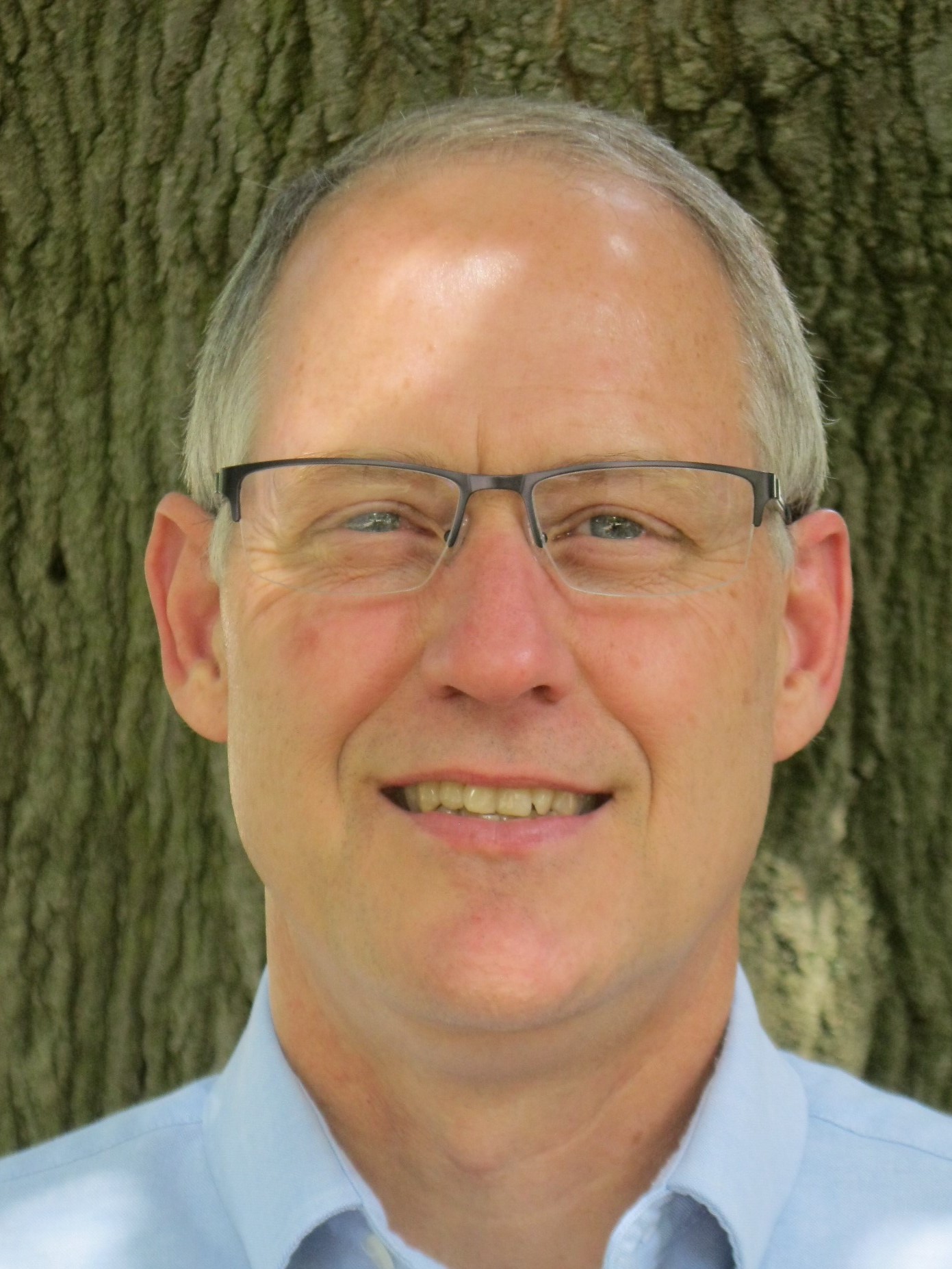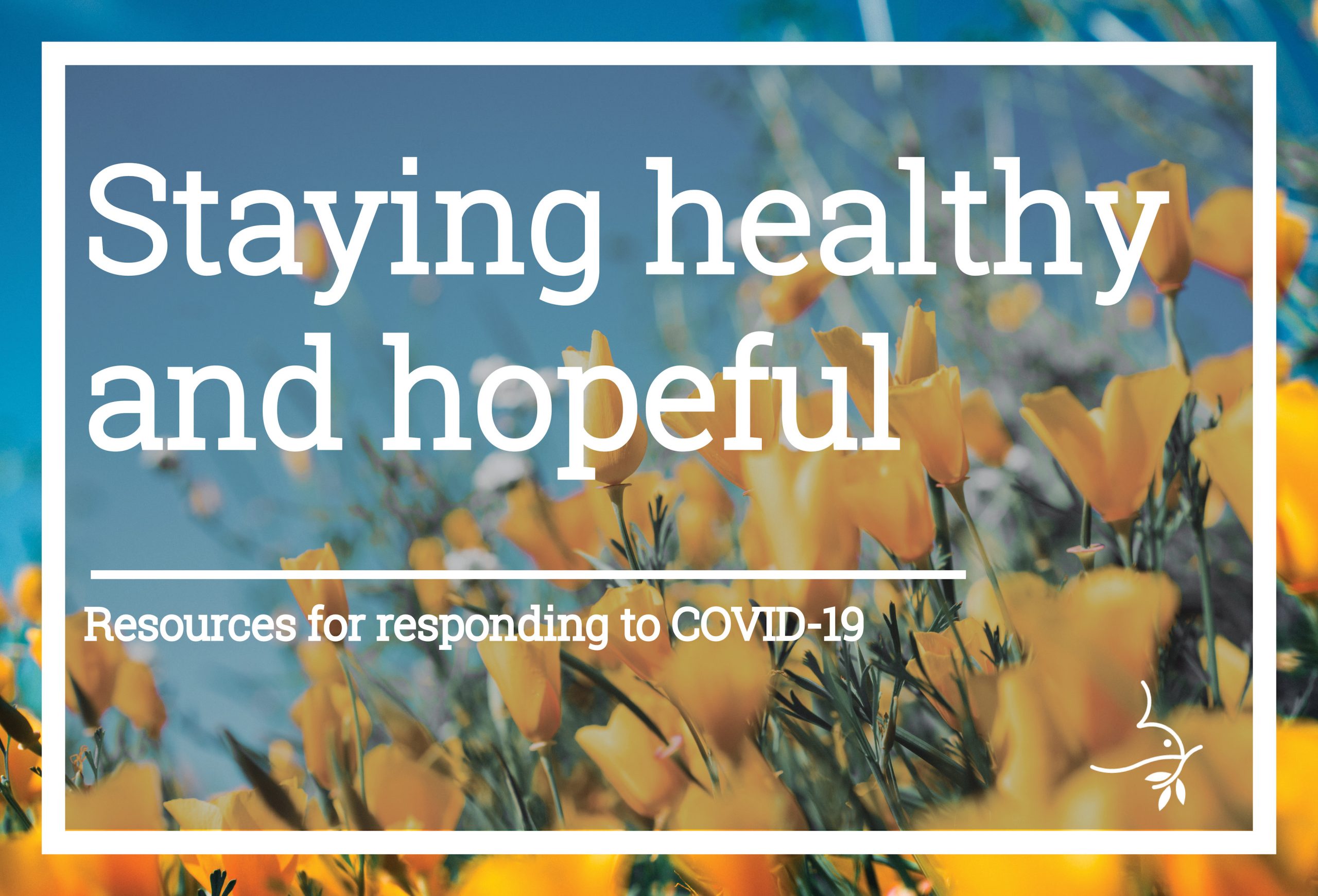 Doug Luginbill is the conference minister of Central District Conference of Mennonite Church USA.
Doug Luginbill is the conference minister of Central District Conference of Mennonite Church USA.
Our Central District Conference theme for this year is “Spirit, bless our souls with yearning” and is based on a line taken from a call to worship in Sing the Journey #124. For many of us, our yearnings have likely shifted over the past weeks as we’ve journeyed through this strange season with COVID-19. Most of us yearn to worship together again, in person, voices united in song, “thy will be done” prayed in unison!
Yes, that is my yearning as well. I miss the fellowship, lingering conversations and heartfelt corporate worship. Part of me longs for the familiar and the routine (we call that “liturgy”). But I have another yearning.
I yearn for a church re-calibrated, transformed, woke up and deeply centered on all that really matters.
The pandemic has meant “doing church” in all kinds of new ways. Pastors and leaders had to figure out new technologies. Circles of care have been created and elders have been serenaded through nursing home windows. Zoom meetings became a thing (including the term “Zoomed Out” to describe the feeling after the fifth Zoom meeting of the day!). Caregivers spent lots more time on the phone. Pastors made decisions on the fly. Caring funds were received and distributed. Techies had a heyday pulling together creative worship experiences. For many, this season has been exhausting. For others, this has been exhilarating as each day offered a new set of problems to solve and creative ideas to explore.
For both the exhausted and the exhilarated, my yearning is for at least a bit of transformation!
I’m not sure blanket statements are helpful about what transformation must look like for my congregation, the Central District Conference or Mennonite Church USA. But I do yearn for an openness to transformation, both individually and corporately. So, before we go back to church (as usual?), I encourage at least three contemplative practices.
One ancient contemplative spiritual practice is the “Consciousness Examen” or spiritual reflection on the day. I encourage a “Pandemic Examen.” This can be done individually, with congregational leaders or denominational/institutional organizations. Where did we (I) see God in the midst of this chaotic season? How was our faith tested? How did we practice our faith in meaningful and practical ways? What were the surprises, both good and bad?
One change that I’ve noticed personally during this season is the gift of a daily rhythm. As a conference minister, approximately 25% of my time is spent in a car, traveling to various congregations, pastor peer meetings and denominational gatherings. I truly value face to face conversations and worshiping with other congregations. But this schedule also meant that there wasn’t much “routine” in my weekly or monthly schedule. By sheltering in place, I’ve experienced a routine that, once I got through guilt and grief, is rather life-giving. I get up at the same time. I have three meals and two walks a day with my spouse. My morning rhythm includes more Scripture reading. I play more games. I drive less (hardly at all) and thus spew less carbon into the atmosphere. I am actually more rested and less stressed. So I am wondering how I might find ways to continue this gift on the other side of COVID-19!
A second practice is a thoughtful and faithful reflection on accessibility and hospitality. One of the observations many pastors have made during this season is that those who have been absent from their worship for a while are showing up on their live Zoom worship. In some cases, virtual worship attendance has surpassed physical worship attendance. Some who have either physically moved away from the congregation or were physically no longer able to worship in person are enjoying reconnecting through Zoom and other video worship formats. Others who have “virtually” moved away (chosen not to worship with the community) are also re-entering through what seems like a safer way to connect with the community of faith.
What does this tell us about how we practice hospitality, about accessibility, and about a desire for spiritual engagement when “traditional church” no longer suffices? What can we carry forward post-COVID-19 that will invite greater participation in community even as “community” might physically be something different?
Jesus was continuously challenging and sometimes breaking deeply ingrained religious practices around hospitality and accessibility. Perhaps this is our opportunity to practice a more generous hospitality as well.
One way that I’ve practiced hospitality and accessibility during this season is by offering twice-a-week Clergy Chats for any credentialed leader or congregational contact person in Central District. While participation varied greatly, I always looked forward to seeing who would show up and making sure there was time to introduce folks who didn’t really know each other. Some folks met one another for the first time. A pastor of a non-denominational congregation who is wanting to learn more about Mennonites has been showing up regularly and sharing his wisdom even as others share their wisdom with one another. Zoom has invited hosts to practice virtual hospitality in new ways. And some have found Zoom worship to be a safer and more comfortable way to listen and respond to faith. How can we continue practicing hospitality and accessibility in new ways?
A third practice is the acknowledgment of the vulnerabilities and brokenness within ourselves and our systems. And, relatedly, the awareness of how little control we actually have is being revealed.
Like a great veil being torn away, our spiritual vulnerabilities and the socioeconomic disparities of our world are being exposed in full light.
Disparities between rich and poor are on full display. The rapid spread of the virus of racism is evident as people of Asian ancestry are targeted with threats and violence. Various leadership styles play out on TV in real time, for better or worse. Our personal fears, anxieties and assumptions are being put to the test.
The first step in transformation is a deep awareness and acknowledgment that something isn’t right — in ourselves or the systems of which we are a part. (We sometimes call this “repentance.”) The second step in transformation is partnering with others to bring about change. On a personal level this might be a spouse, a mentor, a pastor or a friend. On a system-wide level this might be a congregation, a conference, a local village council or a national governmental organization. (We sometimes call this “action.”)
A spiritual vulnerability that I’ve wrestled with within myself through this season is the “need to be needed.” Many of us pastor and caregiver-types find personal meaning (both psychological and spiritual) through our ability to assist/help others. Yes, it is part of my job to be a resource to pastors and congregations. But, I’ve also had to trust that pastors and congregational leaders who haven’t shown up for weekly clergy chats are doing just fine on their own, connecting to those in leadership with them. Letting go of control, trusting the giftedness of all God’s people, offering resources but not forcing them upon others — these are some things I’ve learned about myself and leadership during this season.
My brother-in-law who is a pastor and mentor shared with me the following quote from Brad Meltzer. It speaks to my need to be needed: “We are all ordinary. We are all boring. We are all spectacular. We are all shy. We are all bold. We are all heroes. We are all helpless. It just depends on the day.” Claiming our vulnerabilities, insignificance and courage is a spiritual gift.
So, before we develop distancing guidelines, PPE requirements or other re-opening strategies to get back to church (as usual?), I yearn for each of us to use this season as both teacher and prophet. How might God’s Spirit be inviting transformation within us and throughout our churches and institutions during this season? May intentional reflection and spiritual discernment guide us.
Find resources on staying hopeful and healthy during COVID-19:
mennoniteusa.org/resource/resources-for-responding-to-covid-19/
The views and opinions expressed in this blog belong to the author and are not intended to represent the views of the MC USA Executive Board or staff.


